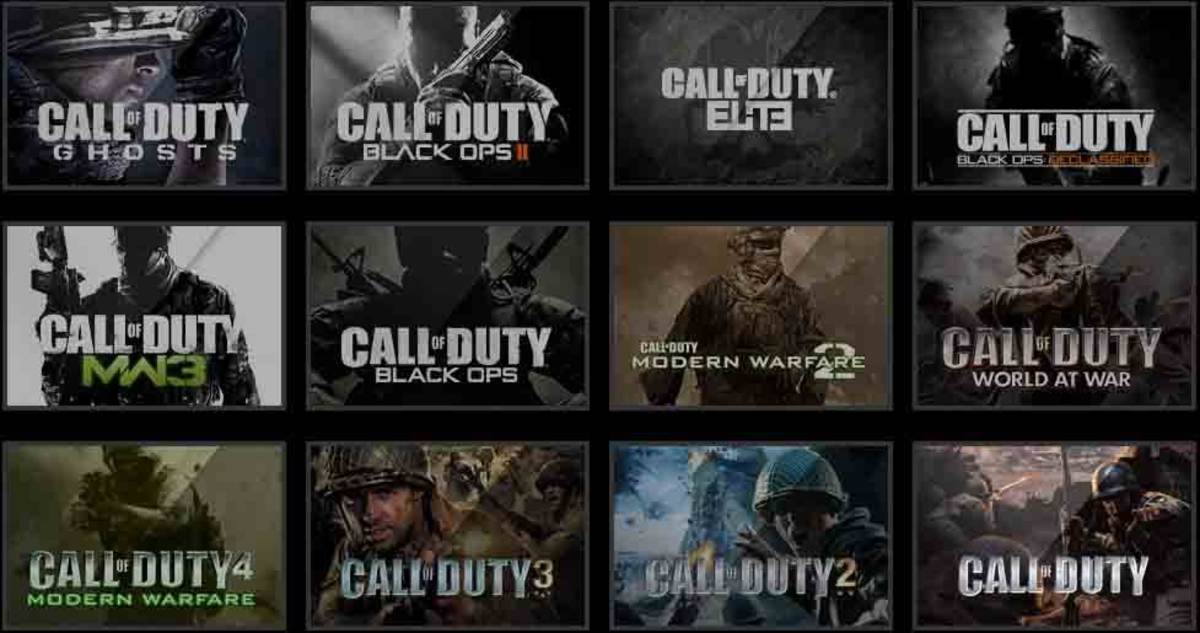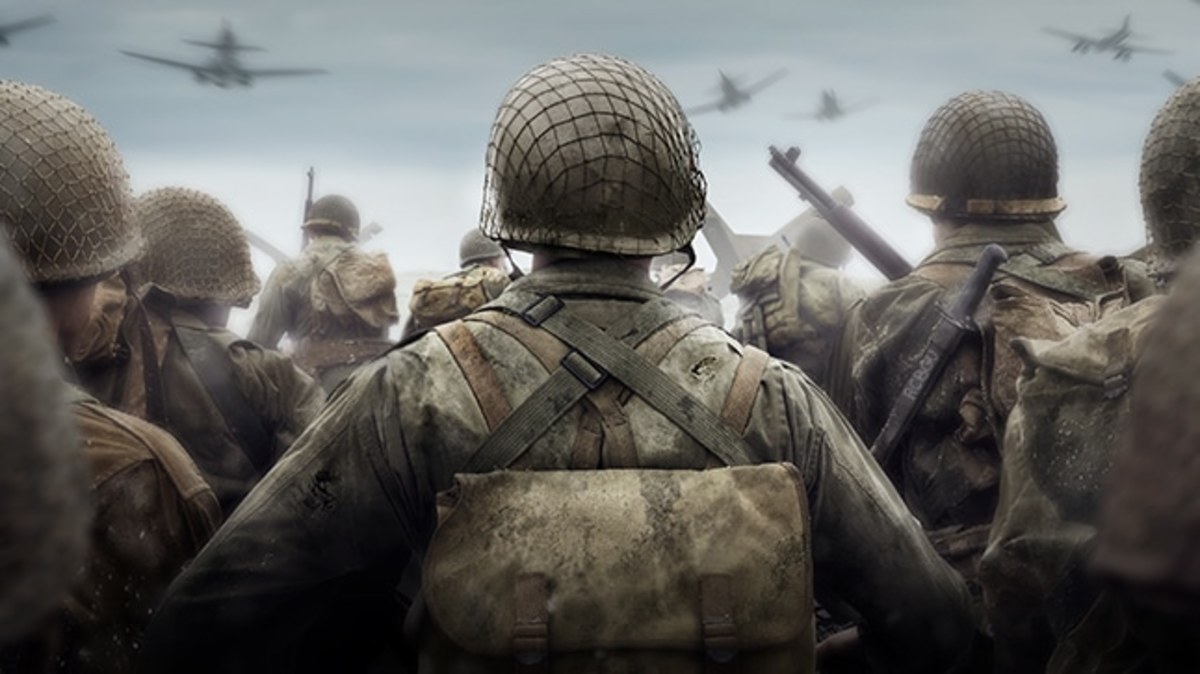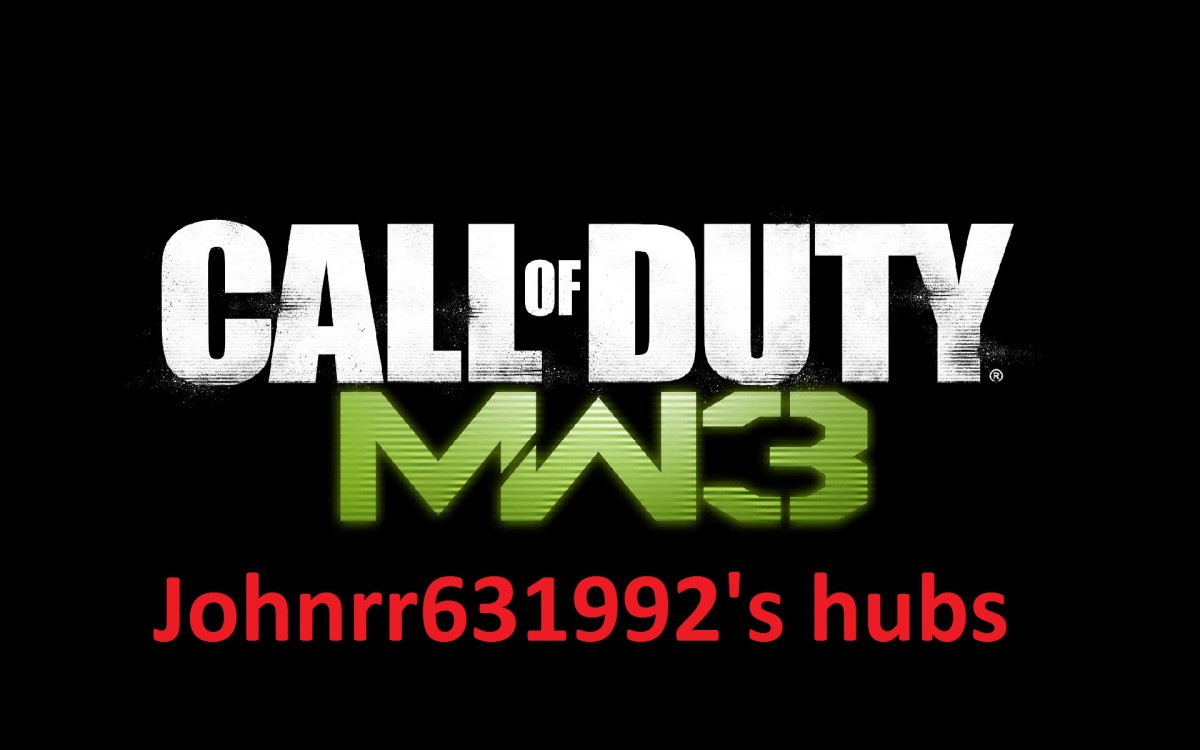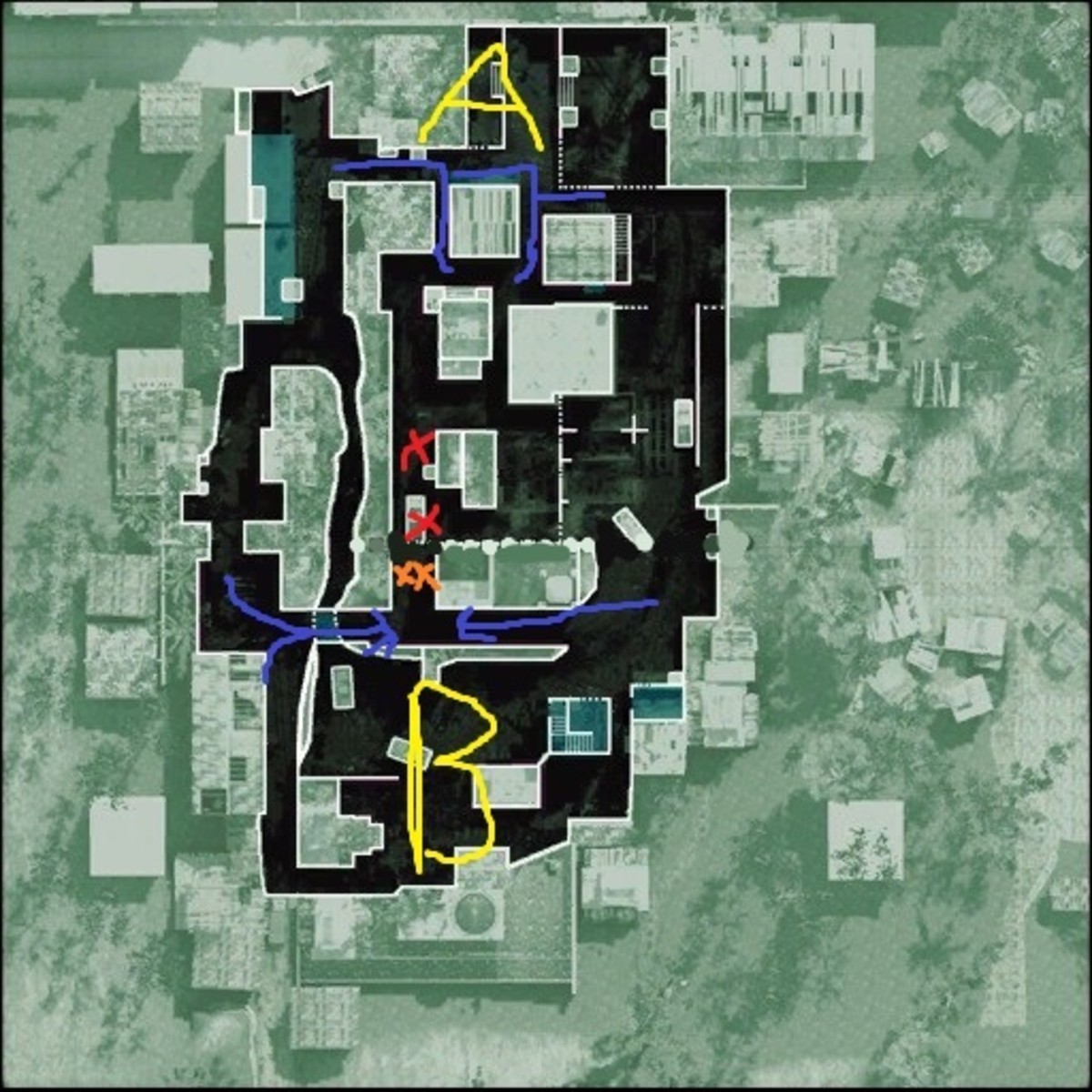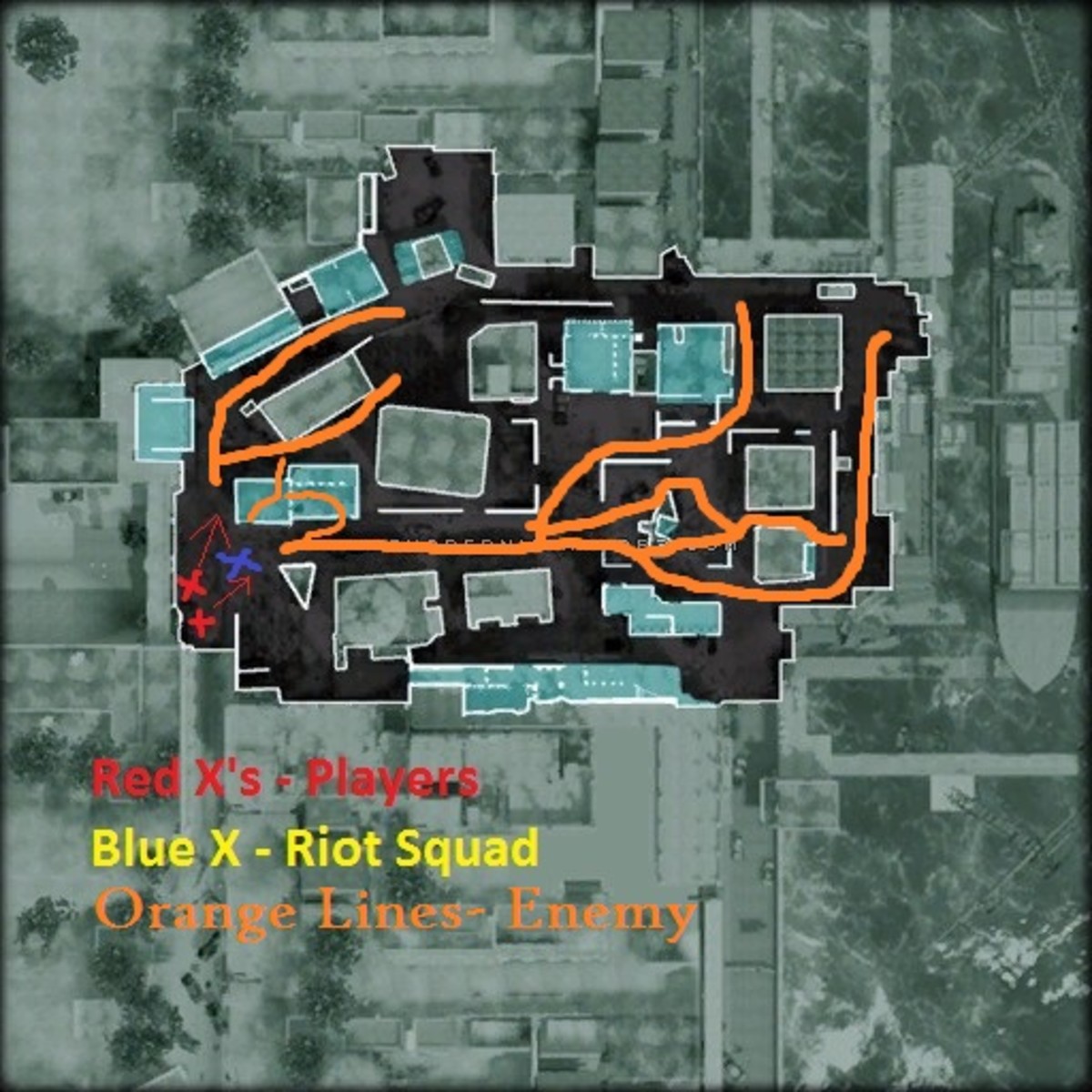- HubPages»
- Games, Toys, and Hobbies»
- Computer & Video Games»
- Online Video Games
The Call of Duty Community Is Already Regretting the End of Future Warfare

In 2013, when Infinity Ward’s Ghost had released fans were not impressed by the futuristic multiplayer maps, and many argued that the game engine had somewhat shifted from the design and gameplay experience that fans enjoyed in the Modern Warfare series. It was at this time that many people predicted that Treyarch would produce a World War II setting game in 2014, only problem was that sledgehammer Games stepped into the Call of Duty business model release cycle, and 2014 dawned the new age for Call of Duty’s full blown futuristic warfare settings.
The next-generation consoles launched in 2013, a sign that Call of Duty was going to do something big in 2014, and little did people know that the series was going to skip ahead into the distant future. Earth is looking somewhat changed in 2014’s Advanced Warfare, a game that introduced new multiplayer gaming mechanics, such as wall running and jet pack boosting high into the sky. This was a new form of gaming mechanics innovation for Call of Duty, and Activision (the Call of Duty IP owner) believed that this would take the franchise into a new time era with all new fans to join in on the fun. Issues were had over the game engine innovation, as there was little to no change with the game engine itself, the very thing that lays the foundation for a video-game to be built from the ground upwards.
The futuristic setting for Advanced Warfare was not well received by the Call of Duty community, and as such a problem should arise Activision has no choice but to go ahead with their pre-planned Call of Duty titles that would stretch over a 3 year period; 2014’s Advanced Warfare, 2015’s Black Ops III, and 2016’s Infinite Warfare. Raven Software was contracted to create the remaster for Call of Duty 4, released in 2016, and titled Modern Warfare Remastered. The game was doomed from the very day of release alongside the Deluxe Edition for Infinite Warfare.
The Call of Duty community did not take kindly to being told that they must double their fee in order to gain access to the Modern Warfare Remastered title. The title was given a solo release at the end of June, 2017, and again this doomed the game because it had been several months since the games life-cycle had begun. At this stage, the internet is shadowed with the Modern Warfare Remastered fans that have hung up their controllers as they have completely finished the multiplayer ranking-up system. Once the game is beaten, many gamers move onto something new, something fresh, and something that is every bit the better to the game that they have spent so much time enjoying the comforts for.
My quarrels with Sledgehammer Games taking the Call of Duty franchise back to World War 2: Sledgehammer Games is the developer that had to truly shine in order to get their studio to become a part of the Call of Duty developing squad, a squad that consisted of just Infinity Ward and Treyarch when the Call of Duty IP first became a hit amongst the console multiplayer universe. First it was Infinity Ward, then the second year it would be Treyarch’s turn, and then the cycle switches back over to the original developer. This was a sweet deal for the Call of Duty developers, as they would receive instant gratification from the Call of Duty community - perhaps someone in the ball mark for around 50 million players. Sure, the most that a Call of Duty game has ever sold is 31 million copies across all platforms - coming from the likes of Modern Warfare 3 - but this means a solid, reliable payday for the respective developing studio, and through each success they are able to turn the cards again in the future when their release cycle turn comes back around.
Sledgehammer Games first worked on the Call of Duty franchise when they teamed up with Infinity Ward to make 2011’s Modern Warfare 3, and since Infinity Ward was going through a transition faze with a whole new team of developers and resizing for their studio it only made sense for Activision to add Sledgehammer Games developing studio to the life cycle for Call of Duty’s business model, now spreading across 3 years, instead of the 2.
Sledgehammer Games first full game Call of Duty release was Advanced Warfare in 2014, but many Call of Duty fans still didn’t own a next-generation console at this time so the game went unappreciated by many loyal COD fans. Not that Advanced Warfare wasn’t a success, as this would be quite the opposite, with Advanced Warfare being the top sold video-game for 2014. In 2014, the Xbox One had sold roughly 20 million units, and the PlayStation 4 had sold around 25 million units. This is very rarely brought into the conversation topic for the failure of Advanced Warfare from an overall sales, critique response, and general feedback from the mass Call of Duty community. The Xbox 360 had sold more than 100 million units by the end of its generation life-cycle, and the PlayStation 3 with sales relatively similar to Microsoft’s Xbox (360) with a figure somewhere close to 110 million units. Now, that is a lot of consumers using the last-generation consoles, and with that in mind, Advanced Warfare didn’t stand a chance of coming anywhere near close to their last-generation Call of Duty game release for Ghosts. Sure, Advanced Warfare sold more than 20 million copies across all platforms, but as people starting transitioning over to the next-generation consoles it was a sure thing that people would start buying the games that they missed out on when they first released. Point is, if there had been lots of customers, probably somewhere in the region of between 5 and 7 million people, who had not bought the Advanced Warfare game until late 2015 then they will have paid considerably less for a copy of the game, a price that would probably be half.
Advanced Warfare was doomed: Sledgehammer Games' 2014 Call of Duty release for Advanced Warfare was marched out onto the retail shelves (some may prefer ‘battlefield’) to die. Unfortunate, but that is the truth. If someone (and this would have been a lot of people - we mean tens of millions [of a lot]) was to watch a trailer for the new Call of Duty game in 2014 when the next-generation consoles had just emerged at an unreasonable price, then don’t expect the mass consumerism for your previous IP titles to spend an unreasonable amount of money, twice (the next-gen console and the new Advanced Warfare), when they are not getting the same formula that they have grown so used to in previous years. The Advanced Warfare launch trailer did nothing to light the match for the dynamite that would kick-start the Call of Duty direction for the future of video-game innovation, and in this there was a resentment from the Call of Duty community for the IP as a whole. A loss of faith, a loss of direction, and a loss in brand loyalty.
Black Ops 3 may have been overlooked: Now, this is the key point to get across here, and that is of the power that was Treyarch’s 2015 release of Black Ops 3, a series that has been uplifting the Call of Duty communities hopes since the 2008 release of World at War. In 2015, there was a large array of past Call of Duty players that saw the trailers for Black Ops 3 and immediately disliked everything that they saw. The action appeared unbalanced, and all of the rudimentary flaws for Advanced Warfare seemed to be highlighted across the board of marketing for Black Ops 3. A re-skinned Advanced Warfare if you will, only this time around Treyarch would be driving the car, not Sledgehammer Games. Advanced Warfare introduced jet packs, wall running and futuristic weaponry, and Black Ops 3 was eager to showcase their style of jet packs, wall running and futuristic weaponry. Why so many people didn’t buy Black Ops 3: This is perhaps too simpler of an issue, as it was mostly over the disappointment of complete futuristic thrusting mechanics in the games multiplayer, but also due to the lacking of great character led stories in the games campaign. Sure, there will be 2 friends playing the Call of Duty multiplayer as the sole form of gaming, but there will also be 2 friends who are eager to play the single player campaign, and all 4 friends need to be satisfied with everything that is in the game to prevent losing not 2, but all 4 players to a competing video-game iP like Destiny. Ignore Infinite Warfare, and head straight to Black Ops 3: There is a sense of regret towards the way that the Call of Duty IP is heading, and that regret is not completely indulging in, and appreciating the Black Ops 3 title back in 2015. Infinite Warfare released in 2016, and by this time everyone was making fun of the futuristic style of Call of Duty gaming, and so the better part of the young market for Call of Duty made the obvious switch to Destiny 2, Star War: Battlefront and Battlefield 1. Ignoring Infinite Warfare (simply because it is a terrible game - yep, played it for hours - still a terrible game), Black Ops 3 showed potential for an entertaining futuristic setting for Call of Duty, only problem is that it is not the way that people see the Call of Duty IP, since there is a super-strong following for the Call of Duty community to immerse themselves in a world that is closer to home. Not that people playing Call of Duty typically live in war zones, but having it realistic to todays world there is more of an emotional connection to the gaming franchise. The Call of Duty spin-off franchise: The biggest regret for the Call of Duty franchise has been the instability from the futuristic warfare titles, but the way that Call of Duty’s infrastructure in gaming works, the futuristic war setting just doesn’t play all that great with their current game engine. This is why Call of Duty would be wiser to the where if they started up a spin-off franchise that can allow the gaming basics from Call of Duty to be transported over to the spin-off franchise to allow the brand to dominate in the futuristic warfare elements, the current warfare elements, and the past warfare elements. The video-gaming community get spaced when they start to see change emerging in a franchise, especially dramatic changes that alters themes for gameplay and functionality almost entirely.
Advanced Warfare! Black Ops 3! Infinite Warfare!
Do you own Advanced Warfare, Black Ops 3 and Infinite Warfare?
Future Warfare!
How did you like the 3 year cycle for futuristic war settings for the Call of Duty franchise (2014-2016)?
© 2017 Dreammore

